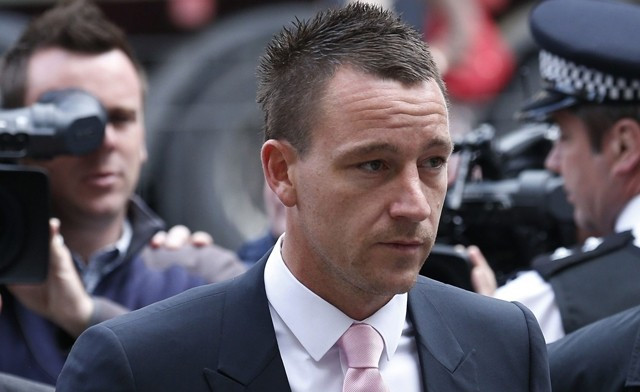Terry Retirement Comes on the Balance of Probability
Opinion: John Terry has jumped before he's been pushed by retiring from international football prior to his FA hearing for racially abusing Anton Ferdinand
While John Terry's retirement from international football has not sparked a day of national mourning, the timing of the 31 year old's decision to sever ties with England is one that will be a catalyst for curiosity.
Having been cleared at Westminster Magistrates' Court in July of racially abusing Anton Ferdinand, Terry was a fortnight later charged by The Football Association for using insulting words or behaviour with a reference to ethnic origin, colour or race of the Queens Park Rangers defender.
Terry has since been selected in Roy Hodgson's first England squad since the summer's European Championship, for the double header with Moldova and Ukraine, which saw the Chelsea centre back feature in the first of the two World Cup qualifying matches.
Four months have passed since the charge was announced; however it took until 12 hours before the start of his personal FA hearing for Terry to announce that his nine-year international career was coming to an end.

Having conferred with QC George Carter-Stephenson, who defended Terry during his trial in July, the former England captain is likely to have come to the conclusion that his case is a lost cause. While The FA are keen to distance themselves from the independent panel, such is the high level of convictions, claims of disparity are unconvincing.
So instead of waiting to be found guilty and having to retire from international football post-haste, Terry has seemingly jumped before he's been pushed to an effort to save face. In his statement on Sunday evening, he said the FA's decision to pursue charges against him despite being cleared by the courts had made his position "untenable" with the national team.
Those comments could be attributed to the FA's own rules which state:
"Where the subject matter of a complaint or matter before the Regulatory Commission has been the subject of previous civil or criminal proceedings, the result of such proceedings and the facts and matters upon which such result is based shall be presumed to be correct and the facts presumed to be true unless it is shown by clear and convincing evidence, that this is not the case."
With the subsequent charge contradicting the FA's own regulations, Terry has good reason to feel aggrieved that the not guilty verdict in the courts didn't translate into his name being cleared with English football's governing body.
The conflicting rule in the FA's guidelines which could see Terry correctly found guilty this week surrounds the burden of proof required. While proof in the courts must be 'beyond reasonable doubt' the FA will allow a verdict 'on the balance of probability.'
It simply depends on which rule The FA deem best suited to this case and whether with all the facts that emerged from court case, that Terry can still be convicted. The subsequent charge and personal hearing suggests he can.
Amid the racial abuse charges, and the two occasions which saw him stripped of the England captaincy, Terry's retirement is a significant loss to Roy Hodgson's England. In an era where modern day footballers have been accused of lacking passion and hunger while playing for The Three Lions, Terry represented the polar opposite with or without the armband.
From a footballing point of view, his absence in an England defence which has seen five different centre-back partnerships in the ten international games in 2012 will be greatly felt. Despite a raft of off the field incidents, his form for club or country and never wavered, a point emphasised by his performances at Euro 2012 and during Chelsea's unbeaten start in the Premier League this season.
But from a man who has rarely shirked away from a battle on the pitch, Terry's retirement from international football provides evidence that he has lost the fight to clear his name with The FA. The independent commission will find a dead man walking at Wembley on Monday.
© Copyright IBTimes 2025. All rights reserved.




















